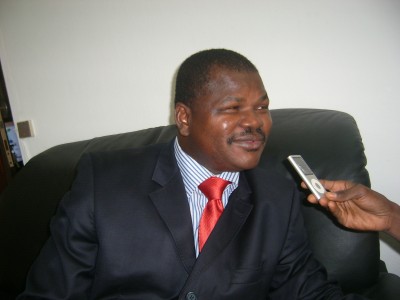The Benin government announced the discovery of a source of oil in the Sèmè-Podji region on October 24. The announcement was made by the Minister for Energy and Oil Exploration, Barthelemy Kassa [fr]:
Quelques 87 millions de barils du pétrole sont disponibles sur le bloc 1 du champ pétrolifère de Sèmè-Podji et feront l'objet d'une exploitation sur quatorze ans, à raison de 7500 barils par jour à compter de la date d'exploitation
It is believed discussions will take place with Nigerian company South Atlantic Petroleum (Sapetro) for a production sharing contract.
However, some in Benin remain skeptical and are asking many questions about the announcement. Journalist Marcel Zouménou raised certain inconsistencies on the Nouvelle Tribune [fr] website:
Selon des sources proches du dossier, la quantité trouvée n’est pas pour autant importante, et n’est qu’un résidu de ce que le Bénin a exploité dans les années 70 et 80, par Saga Petroleum.
Les 12.000 milliards de recettes annoncées, reviennent-ils au Bénin uniquement ? Combien gagne Sapetro dans cette opération.
According to sources close to the project, the quantities found are not all that great, being only a residue of what Benin, via Saga Petroleum, exploited during the 1970s and 1980s.
Will the 12 billion in revenue announced be solely for Benin? How much will Sapetro earn from this operation ?
Even certain members of parliament in Benin are far from trusting of the country's current president in relation to management of this new source of oil. Candide Azannai is one such member. According to an article posted on his Facebook page [fr], he learned that President Boni Yayi allegedly could be preparing to use a portion of the oil exploitation revenues to buy a plane so he is able to rapidly cover all counties of Benin to win over locals for his potential candidacy in the next presidential elections.
For the president then, enlightened management is necessary so that the Benin people can finally be happy about this oil which has always existed under the soil.
Another member of parliament, Lazare Sehoueto, stated that the information broadcast was a matter of propaganda. He too explained this on his Facebook page [fr]:
Pour que chacun se fasse une idée juste, notons que le Nigeria produit 2,5 millions de pétrole par Jour soit 25 millions de barils en dix jours. L’exploitation de nos 20 millions de baril de pétrole résiduel pourra être effectif vers Septembre 2014. Pour combien de jours ? Qu’est ce qui nous restera quand l’inconnue société qui bavarde actuellement aura retiré ses “billes”, il restera quoi à mon pays ?
Mais tout espoir n’est pas perdu. Sur le Bloc 4, un consortium travaille actuellement. Il s’agit d’un consortium composé de sociétés sérieuses (Shell, Petrobras du Brésil et d’une société “béninoise” créée par un Portugais). Il y a de bons espoirs que ce consortium pourra forer jusqu’à 2000 à 3000 m en profondeur dans la mer afin de nous confirmer si nous cernons effectivement la nappe de pétrole. Nous avons du pétrole comme nous avons de l’eau. Mais il faut que les forages “tombent” sur la nappe.
In summary, for the moment there is still nothing new in King Behanzin’s country (a.k.a. Benin). It is undoubtedly still too early to be pleased about the potential of these new energy resources.







